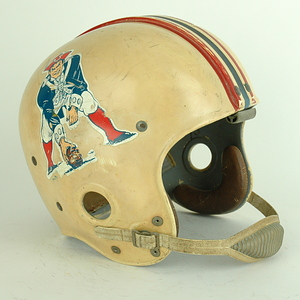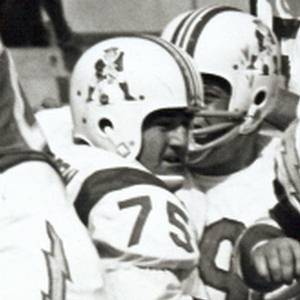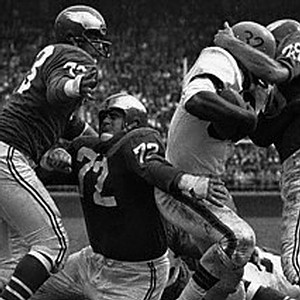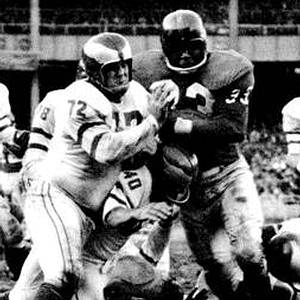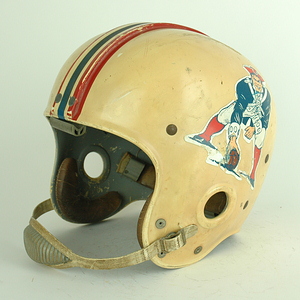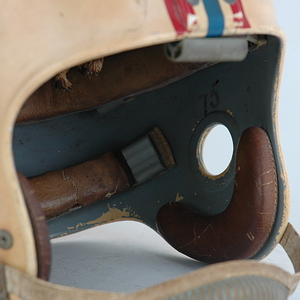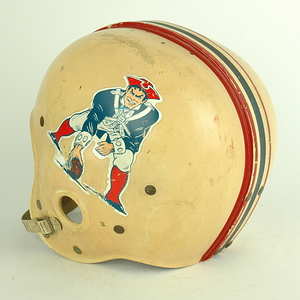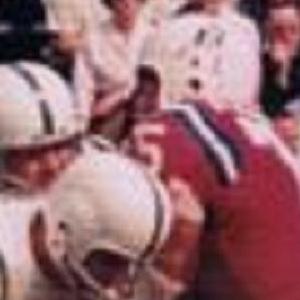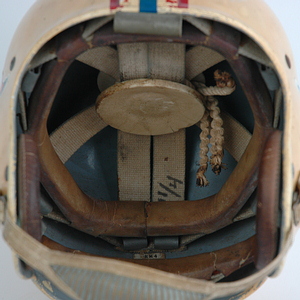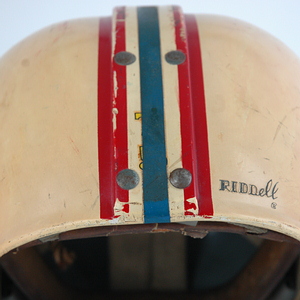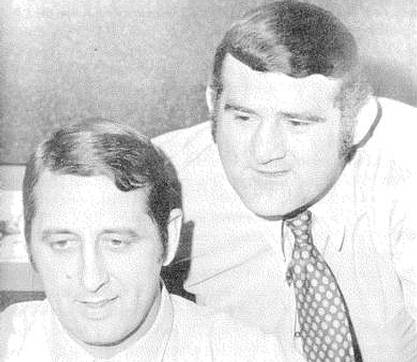High school star, collegiate standout, a
pro football draft choice with a career that spanned twelve seasons, and a
respected coaching resume that had more longevity than most, gave Jesse
Richardson a luster appreciated by all who knew him and perhaps envied by
some. However if ever a man had to deal with setback and sorrow, Richardson
proved he was a resilient individual who could in fact overcome the worst
that life and athletics could throw at him.
A two-way line standout at Philadelphia’s
Roxborough High School, he enjoyed a high school career that brought honors and
recognition of his talent that has left him on a number of “All Time…” all star
lists for both Pennsylvania and Philadelphia area high school football players.
As the leader for the Roxborough 49ers, he earned All Public School honors and a
scholarship to the University of Alabama where he lettered for three seasons and
was a key component as a defensive guard in the Tide’s 61-6 win over Syracuse in
the January 1st, 1953 Orange Bowl. The decisive victory was termed
“the most lopsided win in bowl history” to that point in time and Richardson
enjoyed national exposure as it was the inaugural television broadcast of a
major college bowl game. “Big Jess” became an eighth round draft pick of his
hometown Philadelphia Eagles and his 6’2”, 235 pound frame quietly but very
effectively controlled the interior of the Eagles line for many seasons.
Richardson suffered a devastating injury that tore knee ligaments early in 1957,
the type of injury that was most often not resolved with the available surgical
techniques.
Against all odds, he battled back, strengthened
his knee and lower body, and was again in the starting lineup for the ’58
season. In order to be as fast and quick as possible, Richardson played with
minimal protection. He would not wear pads under his uniform and insisted on the
smallest sized shoulder pads that would fit his muscular torso. As part of his
“sleek and swift” approach to the game and his appearance, he refused to wear a
facemask, even after the National Football League rules were changed to include
it as a mandatory part of the game uniform. Richardson would go through most of
his entire career without a mask and retire as the last NFL lineman with that
distinction. As noted football researcher and author John Maxymuk pointed out in
the very first sentences about Richardson in his book, Eagles By The Numbers,
“Even though he was the last lineman in the league to play without wearing a
facemask, Jess Richardson never lost a tooth. His nose wasn’t so lucky. He broke
that so many times that he would reset it himself by going in the shower,
smearing his nose with Vaseline, and rubbing up and down along the sides of his
nose till he felt everything was back in place.” In addition to his desire to
move as fast as possible, Richardson believed that a facemask would interfere
with his peripheral vision because of his “deep-set, narrow eyes.” Whatever his
true motivation, Big Jess was “grandfathered” by the league and was never
required to don a mask.
Interestingly, for a player who went about
the business of raising Hell in the middle of the defensive line of a rugged if
unspectacular 1950’s Eagles defense, Richardson, even without facial protection,
was known to engage in some “extracurricular” activity that included an errant
elbow or punch. Filling out to 260 pounds, he was the Eagles Defensive Most
Valuable Player in 1955, and came back from his horrid 1957 injury with a Second
Team All Pro nomination and Pro Bowl appearance in ’59. Helping the more
heralded Chuck Bednarik, Maxie Baughn, Bob Pellegrini, and Tom Brookshier on
Philly’s run to the 1960 NFL Championship, Jess suffered through the death of
his seven week old infant just days prior to the game with the Packers. He still
played and helped to secure the crown for the Eagles. During the latter part of
1961, new Coach Nick Skorich removed Richardson as a starter and then cut him in
‘62’s training camp. Jess immediately hooked onto the Boston Patriots squad,
fought through a bout of hepatitis, and became a contributor along the defensive
front. Despite advancing age, Jess’ willingness to mix it up in the middle of
the action didn’t change. Because he was guilty of physical contact with an
official during a “discussion” over a call, he was tossed from the game and hit
with what was then a record $500.00 fine. So popular was this rather under
publicized defensive lineman, that the Boston fans passed the hat around the
stadium and presented Jess with the fine money after the game. His injuries
finally caught up with him. He saw limited action in the Patriots’ loss to the
Chargers in the 1963 AFL Championship game, and finally called it quits at the
conclusion of the ’64 season. He continued to serve the franchise as their
defensive line coach until leaving for a similar position with the ’71 Eagles
under head coach and former Philadelphia teammate Ed Khayat.
Though a large individual, the RK4 two rivet husky helmet was
a bit too big for Jess and they installed the Riddell internal leather padding.
This not only helped with comfort but made the suspension size a tad smaller.
After his dismissal from the Eagles he apparently used the same style helmet
numbers from his Eagles days and applied them to the center ridge of his new
Patriots helmet. The Patriots never wore these style numbers and in 1964
the blue stripe was added and covered up the peculiar placement of these digits.
Teaching all he had learned to the next
generation of Eagles defensive linemen in his hometown of Philadelphia
surely was a dream come true but it ended when the entire staff was fired
after the 1972 season. Tragically, Jess Richardson would then have to battle
kidney disease which took his life on June 17, 1975 at the young age of
forty-five. Now remembered primarily by football buffs for being the last
man standing without face protection, his legacy is carried by the
Richardson Memorial Dialysis Section of Philadelphia’s Mercy Catholic
Hospital. For true fans, Richardson also represents the end of professional
football’s great golden era but this lives on in the representation given by
his wonderful “old school” Boston Patriots helmet.
Coach Richardson with long time teammate and friend Head Coach Ed Khayat of
the Eagles, 1972


